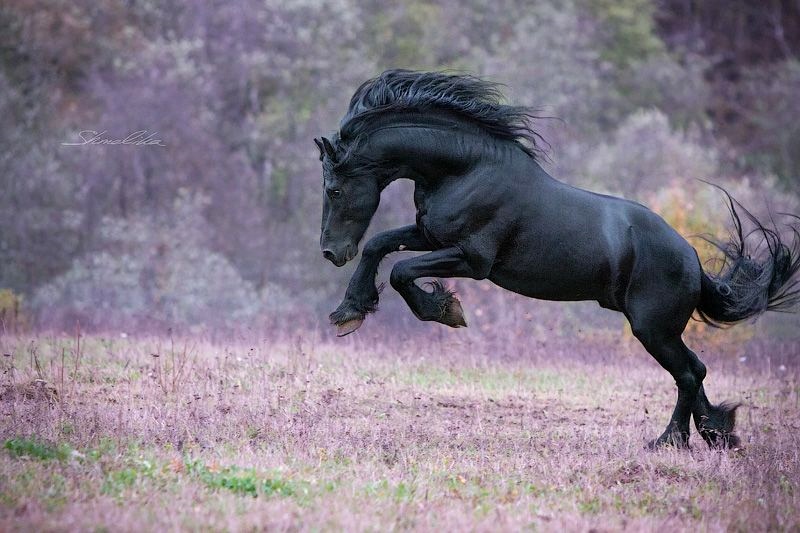Horses are majestic creatures that have been admired and ridden by humans for centuries. They have a special bond with their riders, and they often display an incredible level of bravery and trust. However, even the most well-trained horses can sometimes run out of jumps, leaving their riders confused and frustrated. In this article, we will explore the reasons why horses run out at jumps and what can be done to help prevent this behavior.
Understanding Horse Jumps
A horse jump consists of a series of obstacles that the horse and rider must navigate together. The obstacles can take many forms, from small logs or fences to larger, more complicated structures. In order to successfully clear a jump, the horse must leap into the air and land on the other side. This is an impressive feat, but it can also be dangerous if the horse does not complete the jump properly.
Why Horses Run Out of Jumps
There are several reasons why horses may run out of jumps. Below, we will discuss some of the most common causes.
Lack of Trust
One of the most common causes of horses running out of jumps is a lack of trust in their riders. Horses are sensitive animals, and they need to feel safe and secure when jumping. If a horse does not trust its rider or is uncertain about the jump, it may try to avoid it by running out.
Fear of the Unknown
In some cases, a horse may be afraid of the unknown. It may be unsure of what is on the other side of the jump, or it may be intimidated by the size or shape of the obstacle. This fear can cause the horse to run out of the jump in an effort to avoid the unknown.
Inadequate Training
Inadequate training can also be a cause of horses running out at jumps. If a horse has not been taught the proper technique for jumping, it may be nervous or unsure of what to do. This can lead to the horse running out of the jump in an attempt to avoid the obstacle.
Poorly Constructed Jumps
Poorly constructed jumps can also be a cause of horses running out at jumps. If the jump is too tall, too short, or poorly designed, the horse may be unable to clear it. This can lead to the horse running out in an effort to avoid the obstacle.
Preventing Horses From Running Out of Jumps
Fortunately, there are several steps that can be taken to help prevent horses from running out of jumps. Below, we will discuss a few of the most effective strategies.
Proper Training
One of the best ways to prevent horses from running out of jumps is to provide them with proper training. Horses should be taught the correct technique for jumping, as well as how to respond to their rider’s cues. This will help them to feel more confident and secure when jumping.
Regular Practice
In addition to proper training, it is important to provide horses with regular practice. This will help them to become more comfortable and confident with jumping. It is also important to gradually increase the height and complexity of the jumps to ensure that the horse is adequately prepared.
Proper Equipment
It is also important to make sure that the equipment used for jumping is appropriate for the horse. This includes the size, shape, and construction of the jump. If the jump is too tall, too short, or poorly constructed, the horse may be unable to clear it safely.
Confidence-Building Exercises
In some cases, horses may need to be provided with confidence-building exercises in order to help them overcome their fears. This could include ground poles, cavaletti, or other exercises designed to help the horse become more comfortable and secure with jumping.
Conclusion
Horses running out of jumps can be a frustrating and disheartening experience for riders. However, by understanding the reasons why horses run out of jumps and taking the proper steps to prevent it, riders can help their horses become more comfortable and confident when jumping.
With the right training, practice, and equipment, riders can help their horses to successfully and safely clear jumps. This will help them to build a stronger bond and trust between themselves and their horses.

